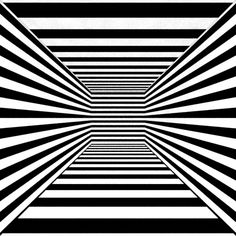|
(2019
final exam assignment) Model final exam answers 2019 (Index) Essay 3: Web Highlights |
 |
Beau Manshack
Literature of Ecology: The Relationship Between
Realism and Ecotopias
For my web highlights I am curious to explore how prior
students viewed the idealized future of ecotopias. The optimistic side of my
personality likes to think through political movement the world can evolve from
dysfunctional to a perfectly planned utopia. My pessimistic (arguably more
realistic) nature leads me to believe that a true ecotopia will only ever be
seen in movies or read in the pages of speculative fiction stories. My purpose
in selecting this theme to research is to see if other students tended to fall
more on their pessimistic side when considering the idea of an ecotopian future.
The fruits of my research warranted fascinating results that suggest that I am
not alone in my pessimism.
Fittingly, Ernest Callenbach is mentioned in dozens of
essays on the model assignments page. He is credited as the person who created
the term “ecotopia”, and followers of the counterculture lifestyle owe him a
great debt for exemplifying values of the green movement. Vicente Garza
discusses how Callenbach’s Chocco is
a story of “both progress and decline…simply a reminder for us that this may be
our future”. I found Garza’s essay well-crafted, as well as professionally
researched. Garza’s impression of Chocco
seems to line up with my opinion of an ecotopian society. This is supported when
he wisely notes that an ideal future would utilize ecotopian beliefs to help
shape the world, but our reliance upon “contraptions and machinations”
ultimately leads us to ruin.
Supporting this notion, Andrew Ridenour argues that an
ecotopian society is more primitive than futuristic. Ridenour believes that an
ecotopian society sounds great conceptually, but reality will not allow for a
true utopia. As Ridenour states, “…there are a number of scientists and
engineers working on the possibility of an ecotopia becoming a reality,
but…there are a number of popular businessmen who do not want it to become a
reality.” The reason that the future will likely be low-tech lies in the fact
that men in authoritative positions do not want to redistribute their power. For
every Elon Musk in the world, we have a dozen Donald Trumps to ensure that
equation is never changed. Ridenour expertly finalizes his thoughts when he
says, “Ecotopia may very well be the way of the future, but as long as there are
people profiting on the present, one should not be too hopeful.” The idea of an
ecotopia is comforting, but there seems to be little chance our future ever
becoming one.
Continuing this pessimistic tone, evidence suggests that
Cynthia Cleveland believes that humanity is headed towards extinction thanks to
climate change. I was impressed by Cleveland’s essay because of the research she
put into it. Seeing how close we are to depleting our natural resources (roughly
thirty years) is a frightening realization. Overpopulation, overconsumption, and
reliance upon technology has set our future in motion—we are the machine people
in Chocco. Cleveland’s suggestion for
setting the wheels in motion for a brighter future is to move away from the
ideals of the machine people and embrace a minimalist lifestyle. I was surprised
with how much I enjoyed this essay. The disheartening subtext that Cleveland
utilized in her essay made me reevaluate my vision of the future once I realized
that no future is ever constant.
Ending on that note, I was surprised to see that other
people agreed that the future we are headed towards is more dystopian than
utopian. What I have learned is that regardless of what future we end up with,
one will undoubtably lead into other. Our dystopian future will eventually morph
into an ectopia which undoubtably reverts into a dystopia. Clearly I am still
somewhat pessimistic, but I have come to appreciate what Dr. White has taught me
about the cyclical process of time. Time is evolutionary—but on their own—humans
remain largely the same.



